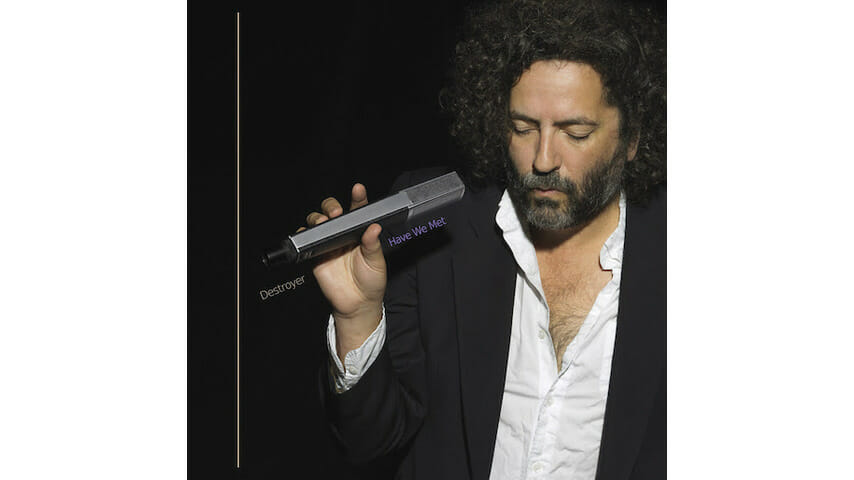Destroyer Balances Eccentricity with Accessibility on Have We Met
Other than just guitar and bass, Dan Bejar’s latest only utilizes electronic instruments

Dan Bejar’s songs often sound like part of the soundtrack to a movie that exists only in his mind. An ’80s-style noir flick, maybe, set in some retro-futuristic cityscape where wet pavement glistens with the reflection of neon lights, and the juxtaposition of idiosyncratic lyrics, Bejar’s plummy voice and the squelch of synthesizers makes perfect sense according to some obscure internal logic. That stylized artificiality has been an unspoken running theme in Bejar’s music as Destroyer, at least since Kaputt in 2011. He and bassist-producer John Collins (former bandmates in The New Pornographers) take it to the extreme on Destroyer’s latest, Have We Met, on which the only actual instruments are electric guitar and bass—and a whole lot of electronic accompaniment, including synthesizers, keyboards and beats.
The result is a hermetic record that is practically self-contained within a computer hard drive. Yet Have We Met never lacks for atmosphere, or a sense of unpredictability that feels kinetic. In fact, the album opens on a capricious note with “Crimson Tide,” where Bejar suddenly switches metaphors while describing himself in the first verse. “No wait, I take that back / I was more like an ocean / Stuck inside hospital corridors,” he sings over barely-there synths, just before a bold electronic snare-kick combo comes in, compressed to sound like a tennis ball bouncing off concrete. Later, a greasy, verging-on-lewd bassline winds through mounting layers of synthesizers and, in the background, squalling guitar.
Bejar frequently plays with the meter of his vocals, cramming torrents of words into tight measures of music, or drawing them out on his lips like he can’t quite bear to let them go. Sometimes he sprinkles lyrics over the music like they’re some kind of topping, without regard for pattern. That’s what he does on “Kinda Dark,” chiming in over wisps of synthesizer and bright, brittle piano chords that are washed away by an overpowering guitar lead that comes screaming through the last quarter of the tune. The way Bejar varies his delivery, even from line to line within a song, continually brings the focus back to his voice, even amid the clamor of whatever else is going on in his songs.
-

-

-

-

-

-

-

-

-

-

-

-

-

-

-

-

-

-

-

-

-

-

-

-

-

-

-

-

-

-

-

-

-

-

-

-

-

-

-

-








































